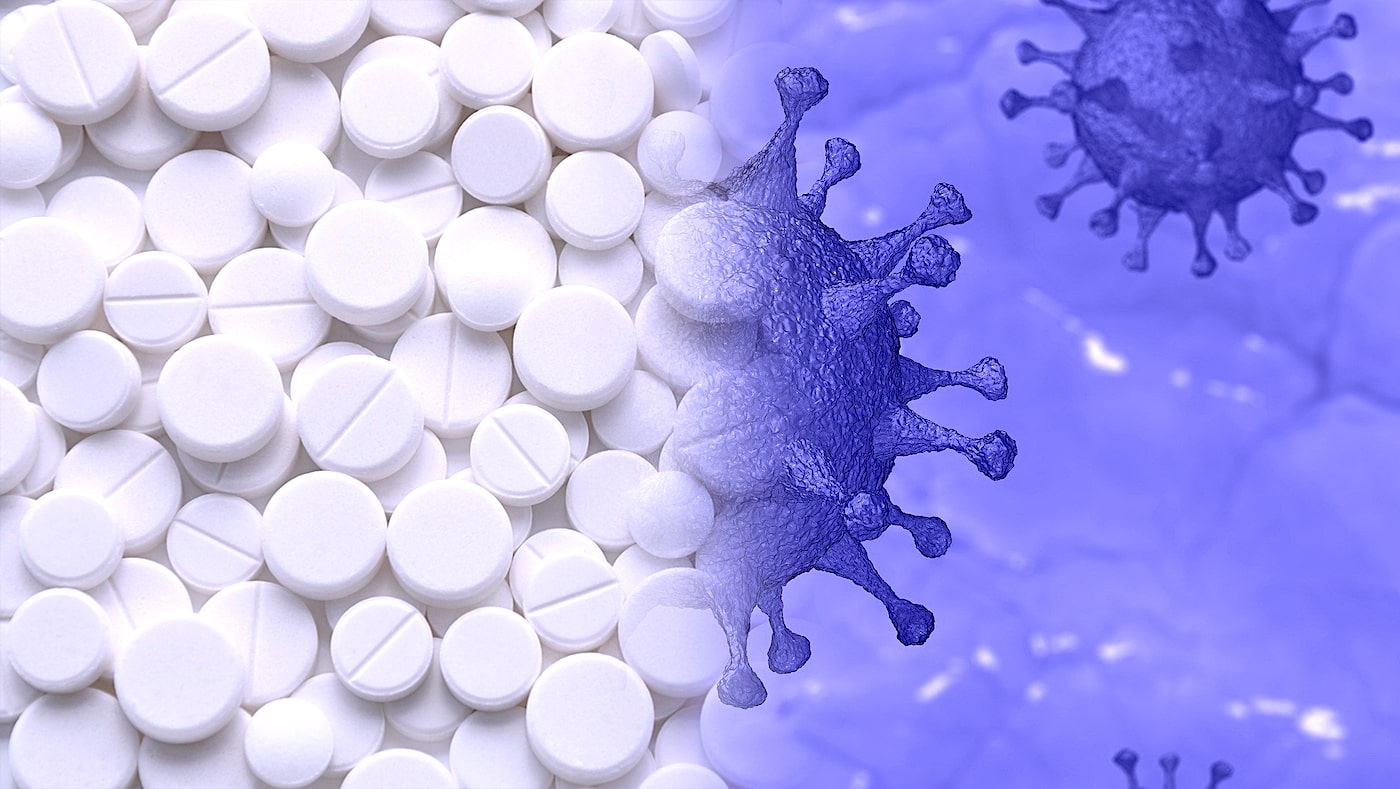
[ad_1]
Waiting for an effective vaccine, hopes are currently focused on potential treatments that can treat COVID-19 or at least reduce the consequences of its evolution in the body. The UK is preparing to administer aspirin to thousands of patients for this purpose, in a study to see if the painkiller can reduce the risk of dangerous blood clots.
Aspirin is one of the most widely used drugs in the world, generic and therefore inexpensive, also widely available around the world. Following the suggestion of the UK’s Covid-19 Therapeutics advisory group, it was recently added to a list of potential treatments that will be tested as part of the randomized evaluation of Covid-19 therapy (Recovery), one of the largest multi-clinical trials – UK COVID-19 treatment.
Experience has shown us that people infected with the SARS-CoV-2 coronavirus appear to have hyper-reactive platelets – the fragments of cells that help stop bleeding – meaning they are more prone to clots. potentially fatal blood, scientists say.
Experts hope that aspirin, an antiplatelet agent commonly used as an anticoagulant, can reduce the chance of clotting complications. ” Aspirin is widely used to prevent blood clots from forming in many other conditions, including heart attacks, strokes, and preeclampsia in pregnant women. Said Professor Martin Landray, investigator co-responsible for the trial.
” But assigning patients to a randomized trial such as Recovery is the only way to assess whether there are clear benefits for COVID-19 patients and whether those benefits outweigh potential side effects such as bleeding risk. Landray adds.
Risk of side effects in high doses
More than 2000 patients should receive 150 mg of aspirin per day in addition to their usual treatment. Data from these patients will be compared with at least 2,000 other patients who are receiving standard COVID-19 treatment.
Because it is a powerful anticoagulant, the medicine increases the risk of internal bleeding and taking too high a dose has been associated with kidney damage for a long time. The use of this molecule (acetylsalicylic acid) must therefore be done with great caution.
Other treatments tested as part of the Recovery study include antibody-rich plasma collected from patients who have recovered from COVID-19, as well as the Regeneron antibody cocktail, used to treat Donald Trump last month.
The decision to add aspirin to this list was made by Oxford University researchers, who are leading the process, and England’s chief medical officer, Professor Chris Whitty, following a UK Covid recommendation. 19 Therapeutics Advisory Panel.
Unlike Gilead’s Remdesivir, which was approved as a COVID-19 treatment in the United States but showed poor results in a large World Health Organization (WHO) study, aspirin is a generic drug, which makes it very cheaper.
The test Recovery was the first to show that dexamethasone, a corticosteroid that is also cheap and widely available, could save the lives of people with severe COVID-19. It also showed that hydroxychloroquine, an antimalarial drug once touted by Trump as a cure, was of no use in treating this disease.
Source: recovery
Source link